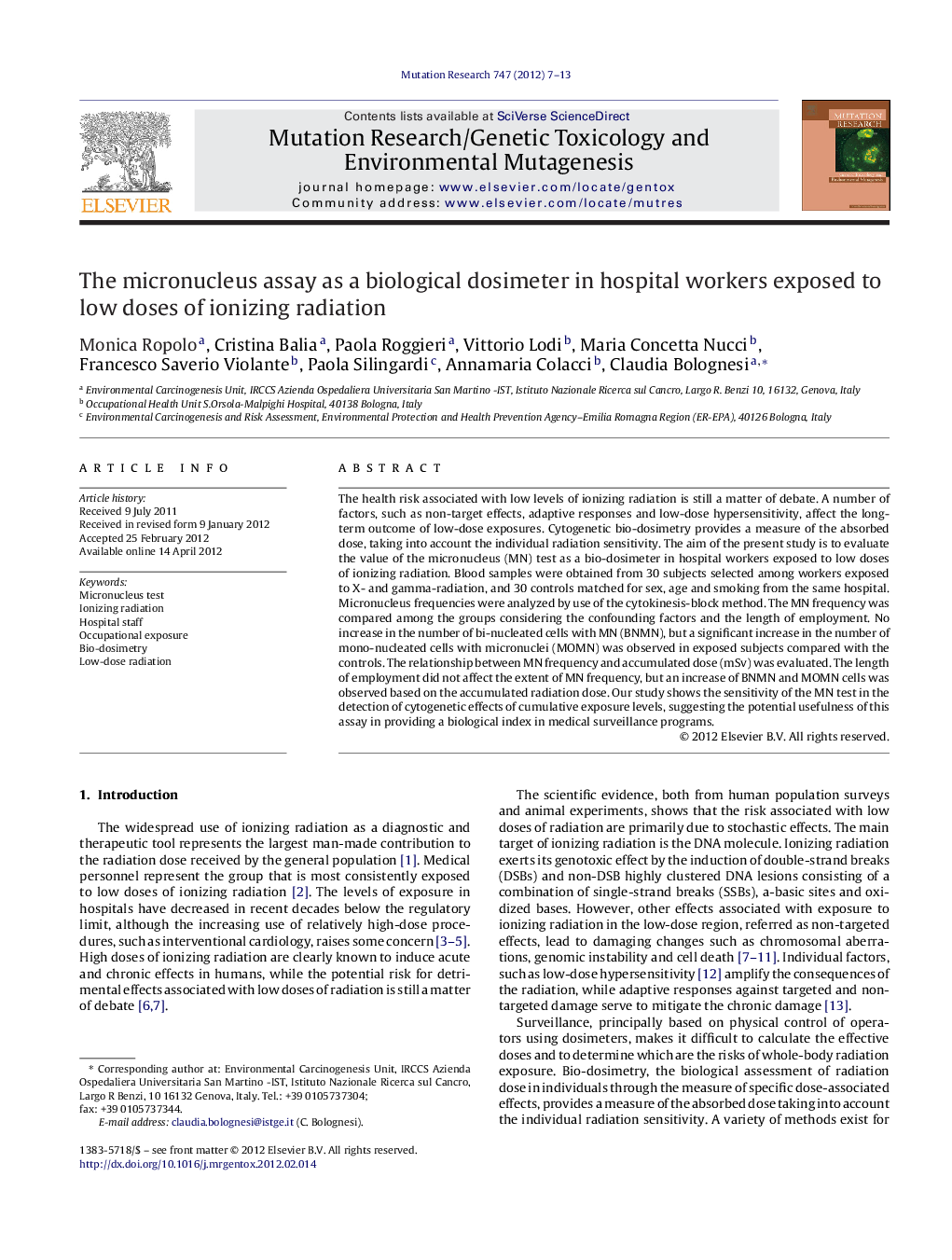| Article ID | Journal | Published Year | Pages | File Type |
|---|---|---|---|---|
| 10915000 | Mutation Research/Genetic Toxicology and Environmental Mutagenesis | 2012 | 7 Pages |
Abstract
The health risk associated with low levels of ionizing radiation is still a matter of debate. A number of factors, such as non-target effects, adaptive responses and low-dose hypersensitivity, affect the long-term outcome of low-dose exposures. Cytogenetic bio-dosimetry provides a measure of the absorbed dose, taking into account the individual radiation sensitivity. The aim of the present study is to evaluate the value of the micronucleus (MN) test as a bio-dosimeter in hospital workers exposed to low doses of ionizing radiation. Blood samples were obtained from 30 subjects selected among workers exposed to X- and gamma-radiation, and 30 controls matched for sex, age and smoking from the same hospital. Micronucleus frequencies were analyzed by use of the cytokinesis-block method. The MN frequency was compared among the groups considering the confounding factors and the length of employment. No increase in the number of bi-nucleated cells with MN (BNMN), but a significant increase in the number of mono-nucleated cells with micronuclei (MOMN) was observed in exposed subjects compared with the controls. The relationship between MN frequency and accumulated dose (mSv) was evaluated. The length of employment did not affect the extent of MN frequency, but an increase of BNMN and MOMN cells was observed based on the accumulated radiation dose. Our study shows the sensitivity of the MN test in the detection of cytogenetic effects of cumulative exposure levels, suggesting the potential usefulness of this assay in providing a biological index in medical surveillance programs.
Related Topics
Life Sciences
Biochemistry, Genetics and Molecular Biology
Cancer Research
Authors
Monica Ropolo, Cristina Balia, Paola Roggieri, Vittorio Lodi, Maria Concetta Nucci, Francesco Saverio Violante, Paola Silingardi, Annamaria Colacci, Claudia Bolognesi,
